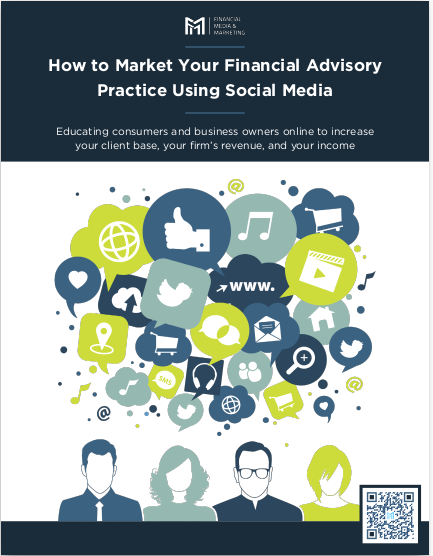Key Takeaways:
-
Maintaining a clean and professional online reputation is crucial for building trust with current and potential clients.
-
Proactive strategies and consistent monitoring can help you control how you’re perceived online.
Why Your Online Reputation Matters More Than Ever
In today’s hyper-connected world, your online reputation is often the first impression potential clients get of you. Before someone schedules a consultation or reaches out for advice, they’re likely googling your name or checking your social media profiles. What they find can make or break their decision to work with you. For financial advisors, who deal with sensitive and high-stakes issues, trust is everything. A solid online presence can reinforce your credibility and professionalism, while a neglected or poorly managed one can deter potential clients.
Key Elements of a Clean and Professional Online Presence
Consistency Across Platforms
One of the easiest ways to build a trustworthy reputation is by maintaining consistency. Your name, title, and branding should be the same across all your platforms—whether it’s LinkedIn, your personal website, or other social channels. Consistent information reassures potential clients that you are organized, professional, and reliable.
High-Quality, Relevant Content
Your online profiles and websites should reflect your expertise. Use these platforms to showcase articles, videos, or insights relevant to your field. High-quality content doesn’t just demonstrate your knowledge; it also helps position you as a thought leader in your industry.
Professional Photos and Branding
Visuals matter more than you might think. Invest in a professional headshot for your profiles and ensure your branding—logos, banners, and website design—aligns with your target audience’s expectations. A polished appearance builds confidence in your abilities.
Proactive Strategies for Maintaining Your Reputation
Set Up Alerts and Monitor Mentions
One of the simplest ways to stay on top of your online reputation is by setting up Google Alerts for your name or business. This allows you to know when someone mentions you online, whether it’s in a positive or negative context. Early detection gives you the chance to respond quickly and appropriately.
Regularly Audit Your Online Presence
Take time every quarter to review your profiles, websites, and search engine results. Check for outdated information, inactive profiles, or anything that might not align with your current branding. Delete or update as necessary.
Claim and Optimize Your Profiles
If you haven’t already, claim your profiles on major platforms like LinkedIn, Google Business, and industry-specific directories. Ensure they are complete, professional, and optimized with relevant keywords to improve visibility.
Avoiding Common Pitfalls
Be Mindful of Social Media Posts
Even personal accounts can impact your professional reputation. Avoid posting anything that could be perceived as controversial, offensive, or unprofessional. If you’re unsure about a post, it’s best to err on the side of caution.
Don’t Ignore Negative Feedback
Ignoring or deleting negative reviews or comments can often backfire. Instead, respond politely and professionally, addressing the issue and offering solutions where possible. This demonstrates accountability and a commitment to resolving problems.
Stay Compliant
As a financial advisor, you’re bound by regulations that govern how you market your services online. Make sure your content and interactions adhere to these rules to avoid penalties or legal issues.
Enhancing Your Professional Image
Publish Thought-Leadership Content
Writing blogs or articles on topics relevant to your audience can significantly boost your reputation. Focus on educational content that answers common questions or explains complex financial concepts. Use clear, concise language to make your insights accessible.
Engage with Your Audience
Reply to comments, answer questions, and participate in online discussions related to your field. Engaging with your audience shows you’re approachable and willing to help, which can strengthen client relationships.
Showcase Testimonials and Case Studies
While you must ensure compliance with advertising regulations, sharing testimonials or anonymized case studies can highlight your expertise and the value you provide to clients. These are powerful tools for building trust.
Long-Term Maintenance Tips
Establish a Regular Content Schedule
Consistency is key when maintaining an online presence. Create a content calendar and stick to it. This could include:
-
Weekly blog posts.
-
Monthly newsletters.
-
Regular updates on social media.
Train Your Team
If you have a team managing your online presence, ensure they’re trained to maintain professionalism. Set clear guidelines on tone, branding, and compliance to avoid missteps.
Invest in Reputation Management Tools
There are plenty of tools available to help you track your online reputation, schedule content, and analyze performance metrics. While some tools may require a financial investment, they can save you significant time and effort in the long run.
Turning Mistakes into Opportunities
Acknowledge and Learn
Mistakes happen, and how you handle them can impact your reputation more than the mistake itself. Whether it’s an oversight in a post or a dissatisfied client, acknowledge the issue and take corrective action. Transparency often earns respect.
Highlight Improvements
If you’ve implemented changes based on feedback, share that with your audience. For instance, if a client review pointed out delays in communication, and you’ve improved your processes, let others know. It shows you value input and strive to do better.
What It Means for Your Success
Maintaining a clean and professional online reputation isn’t just a nice-to-have; it’s essential for building and sustaining trust in your field. By staying proactive, avoiding common pitfalls, and committing to long-term upkeep, you can ensure your digital presence supports your professional goals. A well-managed online reputation not only attracts new clients but also reinforces the trust of your existing ones.










